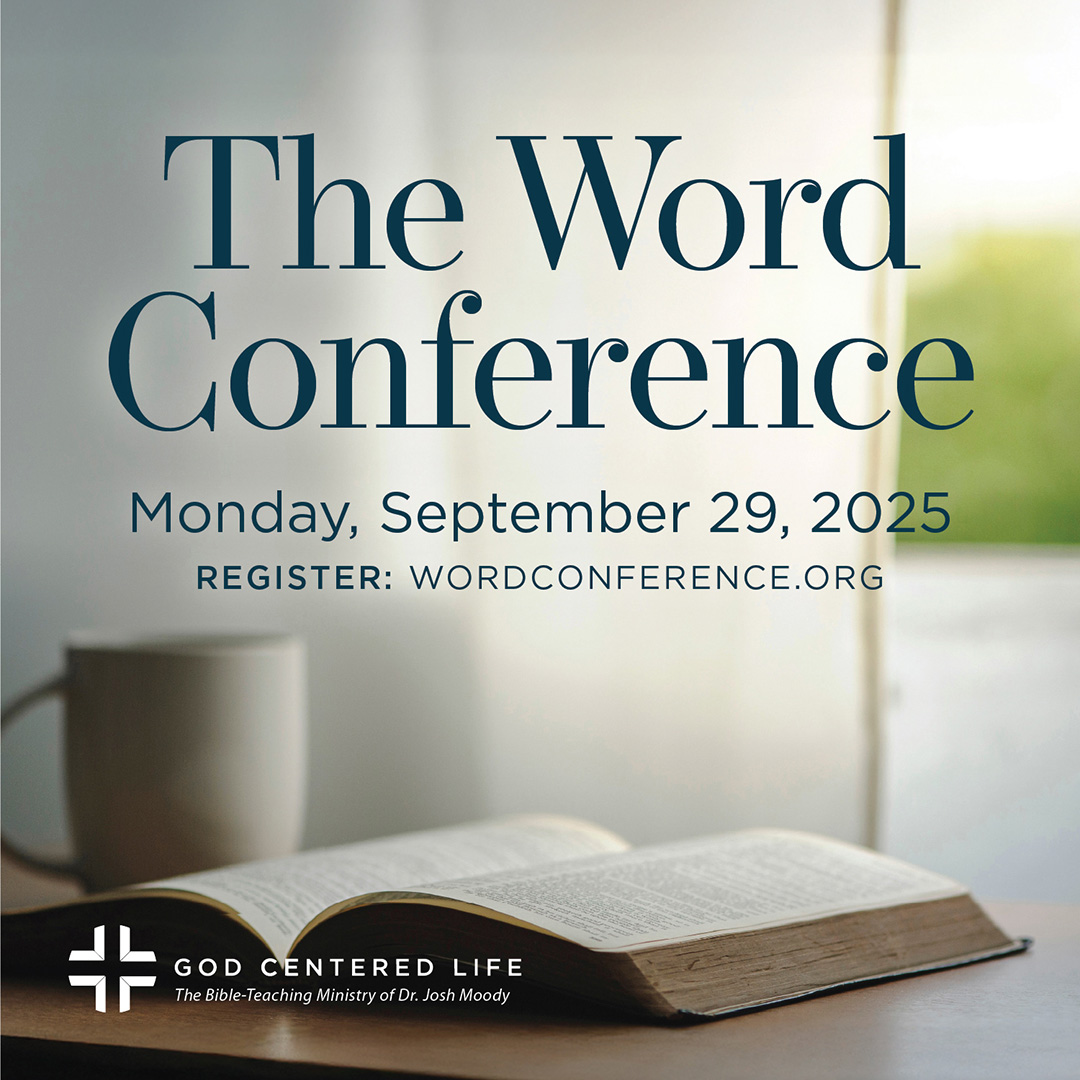Psalm 85: Righteousness Will Go Before Him
April 15, 2022
TODAY'S BIBLE READING:
Judges 8, Psalm 85, Mark 6:14-29, 1 Corinthians 10:14-33

A few years ago Christians around the world would be found regularly praying for revival. Since then, that habit of asking God to restore his people—which is the theme of this psalm—seems to have waned. Why is that?
One of the reasons, I suspect, is because the theology of revival is often insufficiently grasped. By and large, there are two predominant theories about revival which are expressed in congregations today. One is the theory that revival is so utterly a sovereign work of God that there is practically nothing we can do to advance it. This theory naturally tends to result in a kind of passivity where there is revival-talk, and therefore discerning pastors and Christian leaders (who fear lethargy and passivity among their people) tend to dissuade an emphasis upon revival.
The other theory is that revival is something that follows natural laws—like gravity—and that if you simply follow those laws/principles, then revival will inevitably follow. The trouble with this theory is that it seems patently false by experience: revival does not always follow when you just do x, y, and z.
So again, naturally enough, pastors and Christian leaders who have come across this mechanical theory of revival tend also to discourage talk of revival. It leads to disappointment, burnout, even guilt. But Psalms like this one show us that the Bible’s approach to revival is subtler, more nuanced, and in important ways different from either end of this sovereignty-responsibility spectrum.
Revival is indeed utterly in the hands of the sovereign God. But there are ways that God tends to work. And we may be observant of such ways, and indeed—like a good farmer—till the soil and sow the seed. Whether rain comes or not is in God’s hands, not ours, but we can farm the fields.
The psalm starts out (in verses 1-3) describing retrospectively what God did for his people in the past. It is good to remind ourselves of these things. When we recall the great works of God in the past, it gives us a healthy dissatisfaction with our own spiritual attainments. It causes us to long to say to God, “Do it again!”
And so the psalmist then does ask God precisely that: “Restore us again, O God of our salvation” (85:4). Because God is the one who saved us, we may then appeal that God would work to restore us. The psalmist discerns that the spiritual poverty of God’s people can only have one ultimate cause: God’s displeasure, indeed his wrath. “Put away your indignation from us! Will you be angry with us forever?” (85:4). While there can be many practical, sociological, economic, and political reasons for the dissolution of God’s people and their impoverishment, there can only be one ultimate cause: God’s indignation against them.
But note the psalmist does not throw up his hands in dismay and give up! He prays! “Will you not revive us again, that your people may rejoice in you?” Surely, God, you want your people to rejoice in you! Therefore, revive us again that we will rejoice in you! He grounds this appeal in the covenant relationship of God to his people: “Show us your steadfast love, O Lord” (85:7); that steadfast love is the hesed love of God’s faithfulness, his promise, his mercy, his covenant to his people.
But then the psalmist indicates some of the ways to till the soil and farm the land, that if God does send rain there would be a bountiful harvest. He says, “Let me hear what God the Lord will speak” (85:8). Revival that is not rooted in a desire to hear from God through the Bible is only ever at best short-lived. Without fuel, the fire will soon burn up or become a wildfire and sometimes even cause more damage than good. If you are ever part of revival, the best you can do is to ensure that God’s Word is kept at the heart of that revival. It will prevent craziness from taking over and from burning out people, and perhaps hindering revival from coming again in the future. History is replete with examples of revivals that did not have the Bible at the heart, and it records the damage that was ultimately done to the church. However, history shows that revivals that were biblical in their practice did lasting good for the church and the kingdom.
But, “let them not turn back to folly” (85:8). Holiness, practicing what we preach, is necessary. Indeed, “salvation is near to those who fear him, that glory may dwell in our land” (85:9). How can revival come when there is no fear of God in the land? Preach God in all his awesome terror and the ground will be prepared for glory to dwell once again in the land.
The farming metaphor is explicit in verses 10 and 11: Steadfast love and faithfulness meet; righteousness and peace kiss each other. Faithfulness springs up from the ground, and righteousness looks down from the sky. For God’s love to be expressed, for his righteousness to come down like rain from the sky, there is to be faithfulness among God’s people, faithfulness springing up from the ground. A call to holiness was a root cause of the Great Awakening, and in all likelihood all true revivals have had that preparatory groundwork being done. William Law’s Serious Call to a Devout and Holy Life influenced Whitefield and Wesley and many others.
And, then there is confidence—perhaps not in our day, perhaps not in our life—but, “Yes, the Lord will give what is good and our land will yield its increase” (85:12). How? It is the gift of God, but “Righteousness will go before him and make his footsteps a way” (85:13).
If you want to see God do a new work in your church, in your city, in your country, then start here. Start now. Start by clearing out the rocks of sin and preparing the ground with righteousness. For righteousness will go before him and make his footsteps a way.
ABOUT THE AUTHOR
Josh Moody (Ph.D., University of Cambridge) is the senior pastor of College Church in Wheaton, IL., president and founder of God Centered Life Ministries, and author of several books including How the Bible Can Change Your Life and John 1-12 For You.
WANT MORE?
To receive God Centered Life devotionals directly in your inbox, as well as other resources, enter your email address in the form at the bottom of this page and click "subscribe."


